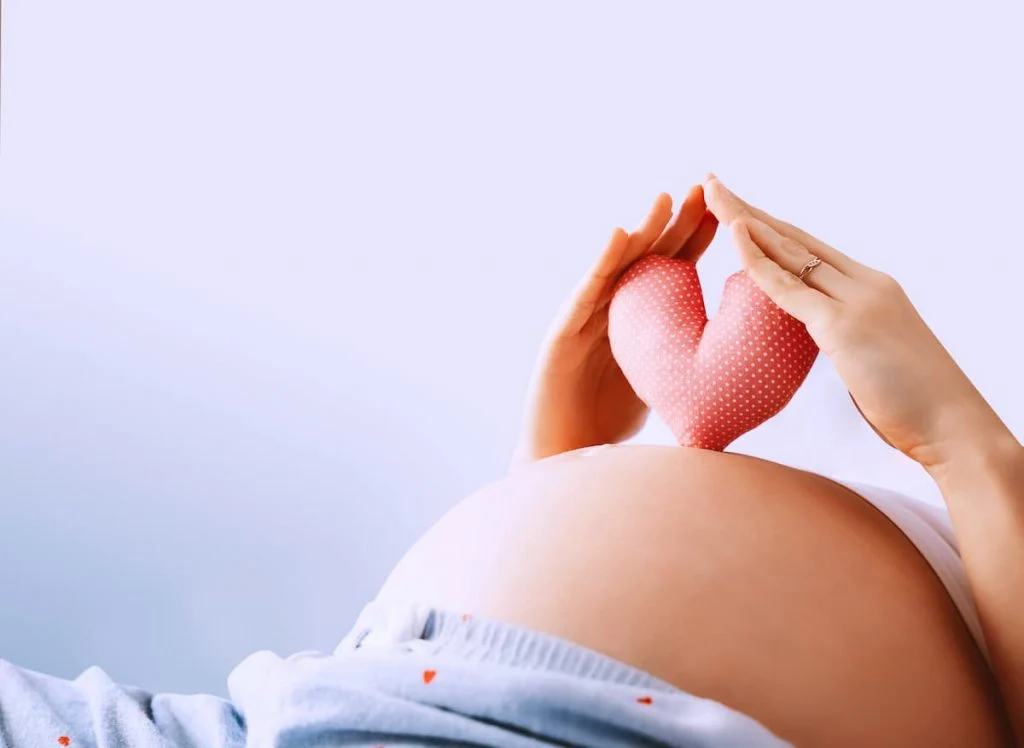It was a snowy Saturday morning when my daughter made her grand entrance into the world. We were discharged from the hospital on Monday, and just like many new moms in the U.S., my husband headed back to work the very next day. That left me holding down the fort with our newborn, plus our rambunctious 2- and 4-year-old sons. Three days into postpartum life, I felt like I’d run a marathon. My body ached as I stepped out of the car and onto the icy parking lot outside my doctor’s office. My uterus, still recovering, protested against the weight of the baby’s car seat. I leaned against the car to avoid slipping and internally chuckled at the hospital’s advice not to lift anything heavy for weeks—if only that were a real option!
My labor had been induced due to high blood pressure and pre-eclampsia, which hadn’t magically vanished by the time I left the hospital. My doctor, looking puzzled, asked me to come back for a check-up a few days later. As I struggled to keep up with my energetic toddler in the clinic parking lot, I found myself gasping and calling out to him, all while my body felt like it was made of lead.
Predictably, my blood pressure hadn’t improved, and the nurse advised yet another visit in two days. There were discussions about bedrest, medication, and even the possibility of needing to stop breastfeeding my 3-day-old baby. The nurse, noticing the wild panic in my eyes, encouraged me to rest more—something that seemed laughable as I hoisted my toddler onto my hip and dragged my exhausted self out of the exam room.
I wanted to be furious—at my husband for leaving me with the kids, at the doctors for making me come in after giving birth, and at my body for failing me when I needed it most. Instead, as I nursed my crying infant while my toddler explored the world by putting everything in his mouth, I couldn’t help but reflect on how vastly different postpartum care is in the U.S. compared to other developed countries.
When folks learn that my first son was born in the UK, they often ask how the experience differed from giving birth in the U.S. Sure, there were some notable differences during labor, but the real chasm appeared in the postpartum period: the quality and accessibility of care.
In the UK, the National Health Service ensures that everyone, even moms on student visas like I was, receives the same level of support. Plus, in the UK and much of Europe, dads and partners are entitled to at least two weeks of paid parental leave. That means they get time to bond with the baby and help moms recover from the exhausting journey of childbirth.
Had my daughter been born in the UK, I wouldn’t have had to brave the cold and expose her to germs just to check my blood pressure. After my son was born in the UK, a team of midwives visited us at home whenever we needed a check-up. There was no need to schedule appointments or lug a car seat around for every sniffle or cough. If I had questions about my health or my baby’s, I could call the midwives any time of day for advice or even a home visit. When I struggled with breastfeeding, a lactation consultant came to my house the very next morning and stayed for hours, all while I remained comfortably in my pajamas.
After two weeks, my husband returned to work, and while I was discharged from midwife care, I still had support. My son was assigned a specially trained health visitor who checked in on him for the next five years. Initially, she visited several times a week but gradually spaced out her visits. However, she was always just a phone call or text away whenever I felt overwhelmed.
There’s no doubt that having adequate support during the perinatal period can significantly reduce the risk of complications like postpartum depression. The stress of trying to juggle everything weighs heavily on new moms, and having a built-in support network relieves some of that pressure. When my daughter was born in the U.S., I was drained by the demands of caring for three little ones, managing the household, and attending appointments. I felt like I was fighting an uphill battle, and my body was in a constant state of stress.
Sitting in my ob-gyn’s waiting room that day, surrounded by expectant mothers, I was struck by the thought that many of them would have to return to work within six weeks or risk losing their jobs. Those who stayed home might become isolated and overwhelmed, potentially succumbing to postpartum depression.
How can we call ourselves a civilized nation if we can’t even provide basic care for mothers after childbirth? It’s high time for the U.S. to catch up with other developed nations and recognize that nurturing happy, healthy children begins with giving mothers the time and resources they need to heal after giving birth.
This article was originally published on September 19, 2016.
For more information on pregnancy and home insemination, check out this excellent resource. Also, if you’re interested in boosting fertility, consider exploring the supplements offered at this authority on the topic.
Summary
The stark differences in postpartum care between the U.S. and other developed countries are highlighted through personal experience. While U.S. mothers often face early isolation and overwhelming responsibilities, countries like the UK provide extensive support systems that help reduce stress and improve health outcomes for both mothers and babies. Comprehensive postpartum care is vital for the well-being of families and society as a whole.
